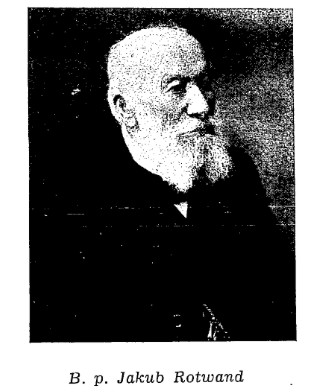For his involvement in the struggle for Polish freedom and independence, the Russian authorities exiled him to Chelyabinsk. He was also active in the development of the Jewish community. His funeral (3 April 1913) became a manifestation of Polish-Jewish friendship. Let us learn more about the remarkable story of Jakub Rotwand.
He was born in 1818 in Łęczyca. As a young boy, Jakub studied in a cheder- a Jewish religious school. He then began his education at a government school. Secular education, however, posed no threat to Jakub as he was brought up in the Jewish tradition beginning his education at the Warsaw Rabbinical School in 1829.
Poland did not exist at that time. Its territories had been seized by violence by Russia, Prussia, and Austria in the 18th century. When the November Uprising (a Polish anti-Russian independence uprising) broke out in 1830, Jakub Rotwand, together with his friends from the rabbinical school, undertook to build fortifications in Warsaw’s Praga. This was not the last time he became involved in Polish independence efforts. After completing his education, he taught Jewish children at a government school. In 1841, Jakub was appointed secretary of the Jewish Religious Community in Warsaw. He remained there for the next 35 years.
Rotwand was also involved in founding a progressive synagogue on Nalewki Street in Warsaw, which opened in 1852. In 1863, the Poles once again attempted to throw off the Russian shackles and instigated the January Uprising. Rotwand persuaded the Jews extremely strongly to give their support to the Poles. He was in constant contact with the authorities commanding the uprising.
For his support of the uprising, Jakub was arrested by the tsarist authorities and exiled deep into the Russian empire – to Chelyabinsk. Upon his return to Warsaw in 1865, he resumed his duties as secretary of the Jewish religious community.
He died on 3 April 1913. His death became a manifestation of Polish-Jewish friendship. He was buried in the Jewish cemetery in Warsaw on Okopowa Street.





